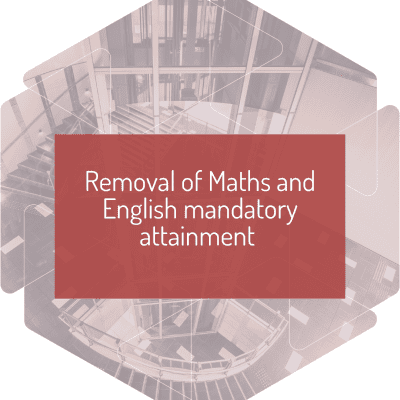In February 2025, the Department for Education announced significant reforms to the apprenticeship system. These changes are designed to simplify assessment, increase completion rates, improve accessibility, and address ongoing skills gaps across many sectors.
Responsibility for apprenticeships has now moved from the Department for Education to the Department for Work and Pensions, and Ofqual has confirmed that all organisations under its regulation are now recognised as awarding organisations.
These reforms mark a shift in how assessments are designed, delivered, and quality assured. Below we outline the key changes and what they mean for providers, employers, and apprentices.
Key changes to apprenticeship assessments
Simplified assessment plans
Current assessment plans are typically 30–50 pages long, written by employers with contributions from end-point assessment organisations, and include strict requirements.
Post-reform, assessment plans will be just 2–5 pages, created by Skills England in consultation with employers. Assessment methods will be listed but not prescribed, giving awarding organisations greater freedom to interpret and design assessments.
Role of awarding organisations
Awarding organisations will now design assessments and grading descriptors, ensuring consistency with learning outcomes. All knowledge and skills must still be assessed, but behaviours will no longer form part of the assessment. Instead, employers will be responsible for signing these off, and there may still be a requirement for employer feedback to demonstrate stakeholder involvement.
Assessments can now take place at appropriate points during the apprenticeship, not just at the end. However, at least 40% of assessment must still be delivered directly by the awarding organisation.
Centre assessed model
Training providers wishing to deliver assessments must apply to become approved centres, regardless of their trading history or experience. This involves meeting approval requirements, undergoing additional due diligence, and demonstrating robust internal quality assurance processes.
LEIA will design and set all assessment activities, even those delivered by centres, and will operate an external quality assurance model through risk rating, sampling, and monitoring. Due to the increased burden of external quality assurance and development costs, LEIA does not expect assessment costs to reduce.
Implications for providers and employers
Providers will now have the option to take the centre assessed route. This decision should be made in consultation with employers to determine what works best for learners and businesses.
For LEIA, the reforms bring significant additional work to meet new requirements. The changes also narrow the gap between an assessment-only awarding organisation and a full awarding organisation, which may open wider qualification opportunities for employers and providers.
Next steps
LEIA will share its possible next steps in a webinar on 21 October, and providers and employers are encouraged to attend and bring forward their views on how the changes may affect them.
Ofqual’s consultation results are still awaited, and Skills England has yet to confirm a precise implementation timeframe, which is believed to be around 12–18 months. LEIA will keep stakeholders updated as more information becomes available.




